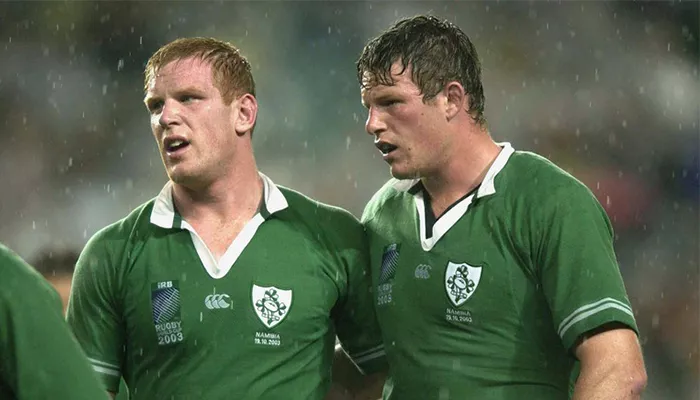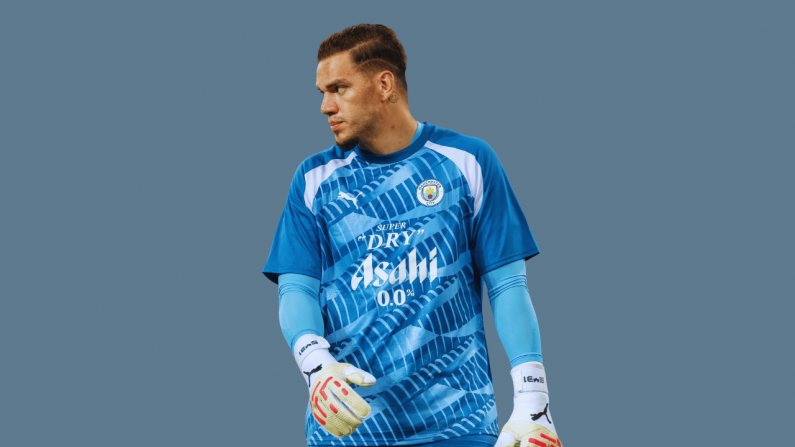They are divisive. Exceedingly common yet incredibly popular. A subjective estimate conducted with a dubious sense of scale and little statistical data.
Players seeking a 10, the perfect version. Journalists hoping to avoid reader derision.
What began in the 1970s with Match magazine's attempts to stand out from competitors has become standard practice in the Irish sporting sphere. Player ratings are part and parcel of contemporary coverage, mainly because everyone is enticed by them. For better or for worse.
"If you ask me outright did I see them during the year, I would have to say yeah, I did, once or twice," declares Cork footballer Ruairi Deane with a chuckle.
The Rebels forward has been subject to ratings on both ends of the scale, although recent appraisals have been positive.

For Deane, that's not necessarily a good thing.
"Sometimes it is actually beneficial. You know yourself if you have had a good or bad game, then it just becomes a different perspective. But if you are paying too much attention to them they will impact you negatively. You worry about thinking you are better or that you are worse than you are."
For players, the media is not a friend. Frequently it is even seen as the enemy. In the pop psychology era of 'control the controllables', coverage is not one of them. That can lead to frustration, never more so than when a lengthy performance is boiled down to a single line and that dreaded mark out of 10.

In the mind of former Irish international Malcolm O'Kelly, that number was the be-all and end-all. He explains that for his Irish squad, the ratings were reason for ridicule.
I never really read the papers. It would do my head in. Look, that is no offence to the quality of writing out there. Some guys would dissect it, coaches actually tend to dissect it to the nth degree. All we would look for was that number. Out of ten. If it was a bad outing, you’d see ones or twos in my day. That was an opportunity to slag, whoever it was would get it.
Generally, I wouldn’t look out for it but you do feel it. You meet people and they are either clapping you on the back or having a go. I came from an era, ah jeez, we used to get killed! I was well used to the tough days that come after. This younger crew wouldn’t be used to it as much. Now with social media, it comes in waves.
It is not that the quantity of 'player ratings' articles has increased but it is easier to access them. Jonathan Douglas made his competitive debut for the Republic of Ireland in 2006 against the Czech Republic, for which he was awarded a 7.
Not that he read it. By that stage, he had elected to avoid them entirely.
"When I first started my club career, on a Monday morning if you were in training doing nothing you would pick up a paper and see it. Now it is worse, they are everywhere. You have people on social media cheeky enough to tag you on it.
"It got to a stage where I never paid any attention at all to it. There was a couple of times with Leeds I would get a six or a seven and you would think you don’t even deserve it, you were much poorer than that.
"Then there were games I would get a five or that and you were thinking, 'who the hell is writing this stuff?' I thought my own performance was better. So after that, I decided there is no point."

Douglas was the exception rather than the rule.
"I do know that a lot of players were looking out for the ratings most weeks. They wanted to see what they got and I don’t know why. I know players in club football with all the fan sites and stuff like that, lads would go online and make a fake name to see if the fans are talking about them."
In a time when the emotional barometer veers from extremes, player ratings often reflect that. After all, the very nature of them is that they are binary. The concept demands that the thousands of minor moments that collectively are critical to deciding a match are reduced to one definitive grade. Countless tackles, runs, touches and carries summarised in a single digit.
Then there is the inherent flaw. The judges have their own expectations, the judged have their own instructions. Often they can contrast with each other.
"If you watch an Ireland game and then watch it back, you will see it completely differently," suggests Douglas.
"You and I could watch Ireland vs Georgia and we’d have totally different opinions. Then if we watched it again the next day, you would notice different things and it would change your perception.
"You don’t know what sort of game it is, what instructions players get on stuff like when to press. When to get forward, when to just stay and cover the back four.
"The difference between a six and an eight is probably one tackle. You could do the exact same thing, cover the exact same miles, touch the ball the same number of times but one prominent tackle can mean you deserve a boost."

Sports like football, rugby and Gaelic games are particularly precarious. They are free-form. An idiosyncratic yet intuitive array of constant assessments; made on the field, on the sidelines and on the terraces. Everyone has an opinion and that is all player ratings are really.
When it is bright it feels like a flicker, when it is bleak it is befouling.
"You'll always hear the negative," says Ruairi Deane. "The culture in Ireland is to let people know when they’ve had a bad game. It is counterproductive in one way. You only hear about the bad one and the good is brushed aside, 'sure that was only a one-off."
You always have to contend with local papers.
When it is more local everyone sees it so you will definitely hear about it. Everyone is basing it off their own ideas, you can be a four in one spot and an eight in another!
Ultimately, You know yourself during the game how it is going. There are times you’d be there and looking over to the sideline, 'I could be jogging off quick here.' Or else you are standing there and you know 'right, I am going well today.'
You need to keep it level. A pat on the back today can be a dagger tomorrow.
They do have their place. In an era of increasing data-driven deliberations on one side and the barstool, subjective takeaways on the other, player ratings persevere as a middle ground.
A space to outline what players have done as well as what they should do.
For Malcolm O'Kelly, he points to Johnny Sexton's comments ahead of the 2019 World Cup on the 'strange negativity' around Ireland. This is merely a disconnect between the external expectation of this team and the internal innervation.
"It doesn’t help when you have punters having a cut at them. But our expectation is there, it has been created. Whether it is warranted or not, you are entitled to it."
As for Ruairi Deane, independent feedback is sought and that is true for every walk of life. It is about finding a balance between seeking validation and finding frustration.
"Sure I am looking for other people to tell me. You feel biased looking at your own performance, someone else looking at it will give you a better overall take. If you get one or two things to improve, you're happy.
"You just have to take it with a pinch of salt."













